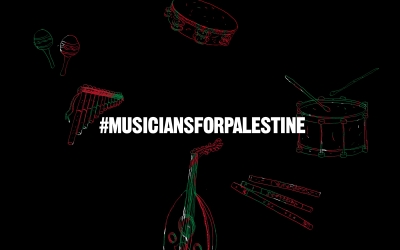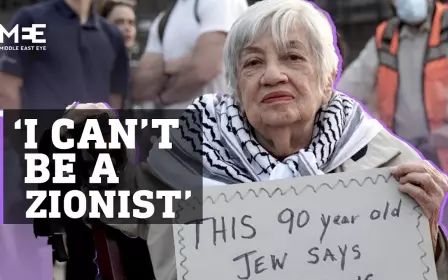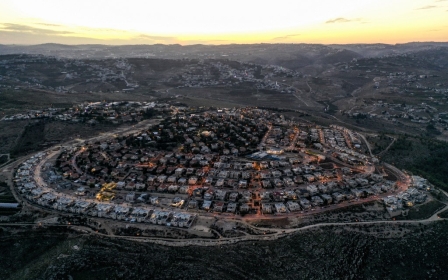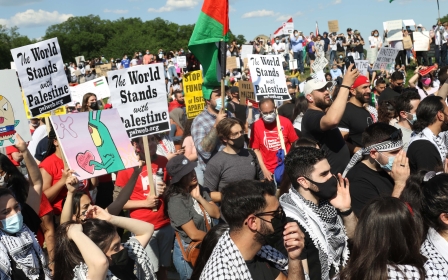Israeli forces kill Palestinian protester in occupied West Bank
Israeli soldiers fatally shot a Palestinian protester in the occupied West Bank on Friday during an anti-settlement demonstration, the Palestinian health ministry reported.
Israeli forces shot the man, identified by the ministry as Zakaria Hamayel, 28, in the chest during the demonstration in the village of Beita, near Nablus.
Hamayel was rushed by the Palestinian Red Crescent to a local hospital, where he was pronounced dead.
The Palestinian Red Crescent said 23 others were wounded during the demonstration, 10 of whom were hit with live fire.
An Israeli army spokesperson told the Reuters news agency that they were looking into reports of the shooting.
Palestinian official news agency Wafa reported that hundreds of Palestinians had gathered at Jabal Sbeih, a mount on the outskirts of Beita that Israeli authorities have slated to seize for settlement expansion and construction.
Israeli forces showed up at the demonstration and began shooting live rounds, rubber-coated metal bullets and teargas to disperse the protesters, Wafa reported, adding that the protesters "posed no threat to the lives of the Israeli soldiers".
Israeli forces have been carrying out arrests across the West Bank following its 11-day bombardment of the Gaza Strip that ended with an Egyptian-brokered truce last week.
Israel's latest offensive came amid moves to forcibly displace Palestinians from their homes in the East Jerusalem neighbourhood of Sheikh Jarrah to make way for settlers.
Palestinian protests over the expulsions drew a severe Israeli crackdown and raids on al-Aqsa Mosque, considered the third-holiest site in Islam.
Since 10 May, more than 25 Palestinians have been killed in confrontations in the occupied West Bank, where at least 400,000 Israeli settlers live alongside about 2.8 million Palestinians.
The West Bank has been occupied since 1967, when the Israeli army captured it along with the Gaza Strip in the Six-Day War.
Middle East Eye propose une couverture et une analyse indépendantes et incomparables du Moyen-Orient, de l’Afrique du Nord et d’autres régions du monde. Pour en savoir plus sur la reprise de ce contenu et les frais qui s’appliquent, veuillez remplir ce formulaire [en anglais]. Pour en savoir plus sur MEE, cliquez ici [en anglais].





